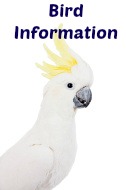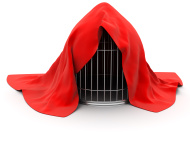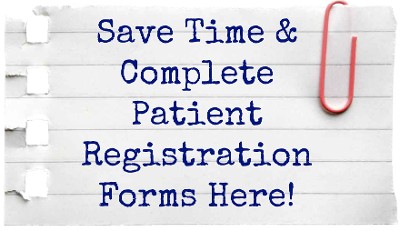
|
Diet - Pelleted food is a healthier choice than a seed diet, but it is important to convert birds slowly by offering seeds at the cage bottom, and pellets mixed with a few seeds at a higher location. Avicakes and Nutraberries are very good for improving your bird’s diet, as they are mixtures of seeds and pellets. Your bird can basically eat anything you would eat. Avoid giving your bird alcohol, caffeine, avocado. Filtered, boiled (cooled), or bottled water is recommended to avoid protozoal contaminantion.
Habitat - Birds need a clean roomy cage in a location that has no drafts. Many pet birds will chew on items around the house or their cages and get lead & zinc poisoning. Avoid exposing them to second hand smoke as this can be fatal.
Avian Reproductive Behavior Female birds occasionally have reproductive problems such as egg binding and chronic egg laying. Several factors stimulate birds in their natural habitats, to go through physical changes so they can reproduce. Some of the factors below can help. Feel free to contact us for additional information Light Cycles: Increased hours of daylight alert birds that spring is coming and it is time to mate. Unfortunately by keeping our birds in artificial light for 12, 14, or 16 hours a day keeps them in permanent state of reproductive stimulation. Try 12 hours dark and 12 hours of light. Dark time is with a thick cover in a quiet room.
Nesting: Access to a nest box or nest materials stimulates further egg laying. Allowing free flight provides access to dark enclosed areas. Remove any boxes if present. Place wire grating in the cage bottom to avoid access to newspaper, bedding or other potential nesting materials. If out of cage time is given, have your birds wings clipped to ensure she is not accessing additional nesting areas.
Medical Prevention: If environmental manipulation is unsuccessful, your pet may then require medical treatment to control egg laying. Effective hormonal treatments are available when used in conjunction with environmental changes. In some situations surgery may become necessary. Consult your avian veterinarian and a tailored treatment protocol will be made with your birds needs in mind.
Veterinary Care - Some birds get gastroenteritis or ingluvitis (sour crop) and will have diarrhea or regurgitate. Your bird should be seen 1-2 times per year by your avian veterinarian for an exam, stool check, and diagnostics if needed. Birds hide symptoms as long as possible when you notice something may be wrong: they are very sick! |









